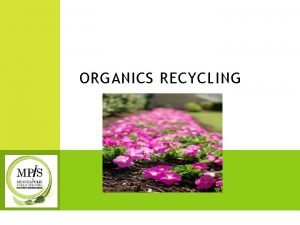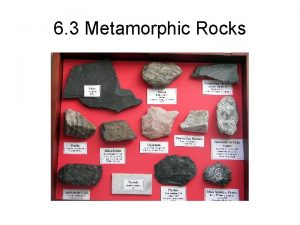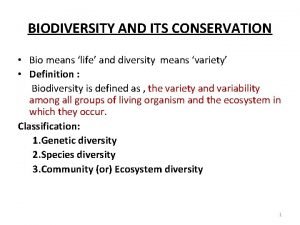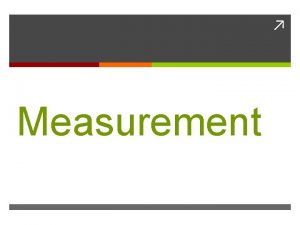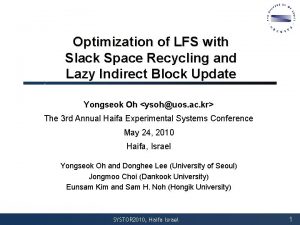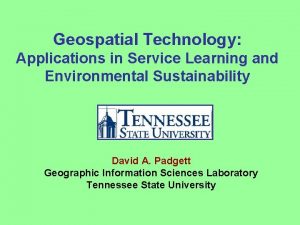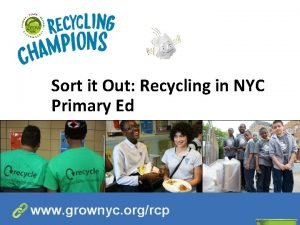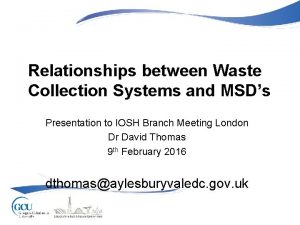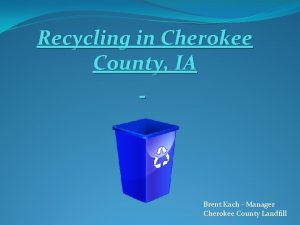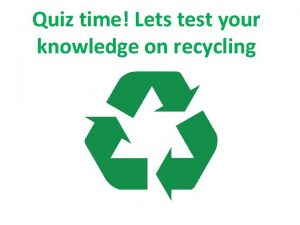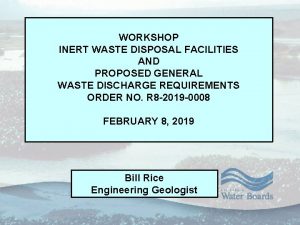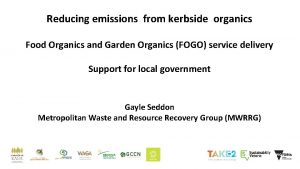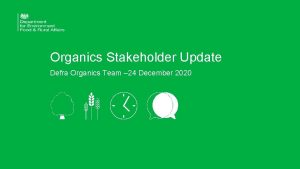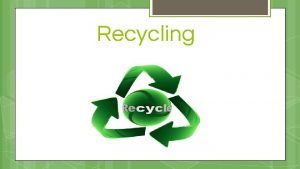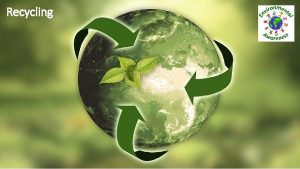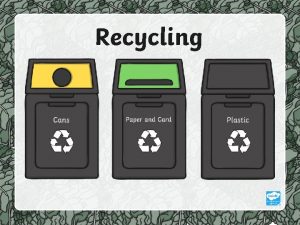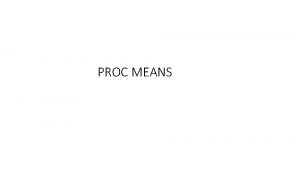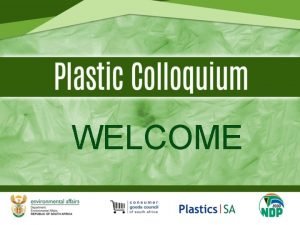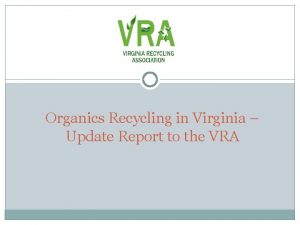ORGANICS RECYCLING WHAT IS ORGANICS RECYCLING Recycling means













- Slides: 13

ORGANICS RECYCLING

WHAT IS ORGANICS RECYCLING? Recycling means turning trash into something useful. Organics recycling is the recycling of organic material – anything that once was alive – into compost, a special kind of dirt. Composting happens naturally and requires very little energy input.

WHY DO ORGANICS RECYCLING? ENVIRONMENTAL BENEFITS • Organic matter can turn into compost (dirt or fertilizer), which supports plant growth. Organic scraps … …become compost… …that is used for planting. • So don’t throw it out!

WHY DO ORGANICS RECYCLING? ENVIRONMENTAL BENEFITS Pictures from the HERC incinerator, MPR Photo/Stephanie Hemphill Reduces Waste and what to do with it is a growing problem. We send our waste to the HERC incinerator Each year in Hennepin County we generate enough waste to fill the Metro Dome 11 times! That’s about seven pounds of trash person, per day! Between 11 - 25% of our waste is compostable. All of the organics recycling programs are diverting 67 tons of trash to organics each month. o Our compost is being used in construction sites.

WHY DO ORGANICS RECYCLING? EDUCATIONAL BENEFITS Creates an educational opportunity for students. Students can visit a composting site, to see how works Or students can create their own compost piles as experiments to learn about the scientific process or how decomposition works. Cultivates thoughtful attitudes among students, teachers and staff. Fits into MN curriculum standards

WHY DO ORGANICS RECYCLING? ECONOMIC BENEFITS Hauling organic matter is cheaper than hauling trash because of tax incentives and reduced processing fees. Organic matter is currently exempt from taxes. Reduced pick-up frequency reduces our trash hauling fee.

MPS ORGANICS RECYCLING MPS is working hard to make organics recycling run smoothly. § MPS negotiated a resource management contract with our waste hauler that: o Bundles waste, mixed recycling and organics hauling o Calculates monthly recycling rates by building o Builds in a performance incentive for increasing recycling and decreasing costs o MPS is one of the first Minnesota school districts to so aggressively manage this expenditure

MPS ORGANICS RECYCLING v Last year, only Burroughs and Lake Harriet. Upper had an organics recycling program. v MPS received a grant from Hennepin County during 2008 -09 to pay for organics recycling startup costs, allowing more schools to participate. v During the 2009 -2010 school year 22 schools participated in Organics. v Over 25 schools are participating for the 2010 -2011 school year.

MPS ORGANICS RECYCLING MPS provides an organics coordinator handbook, organics flyers and signs, a volunteer training presentation and the materials necessary to start the program. MPS also created Green Reports for each school. These give each buildings carbon footprint, and can be used to see how buildings match-up. Participating schools must commit to the program with: An organics coordinator A lunchroom orientation Engaged students, and staff!

MPS ORGANICS RECYCLING Students, teaching staff, and building engineers all play important roles in making organics recycling successful. Building engineers need to commit to picking up the organics recycling and keeping it separate from the waste. Staff can explain how organics recycling works, and give students opportunity to get more involved with the program. Students make the program work! Students can help by monitoring the lunchroom stations, making signs, and thinking of other creative ideas like contests between lunchrooms

MPS ORGANICS RECYCLING PROCEDURES At the end of each lunch period Volunteers will supervise students as they move through the recycling stations. Students will pour liquids into buckets and put food scraps into organics bins.

MPS ORGANICS RECYCLING PROCEDURES Liquids Procedures: Students will dump all liquids (from milk cartons, juice boxes, etc. ) into a bucket with a strainer that will remove any solids. Engineers will flush liquid down the drains. This process reduces the weight of garbage and saves money when it is hauled away.

MPS ORGANICS RECYCLING PROCEDURES Food Scraps Procedures: Students will deposit food scraps and other compostables (napkins, wax paper, milk cartons, etc. ) into the green organics barrel. The bag is compostable (and expensive!). Please make sure it is full before disposing of it. Students will crush milk cartons to save space in the bags. Lunch Trays Procedures: The new paper lunch trays can be placed in the organics recycling bin
